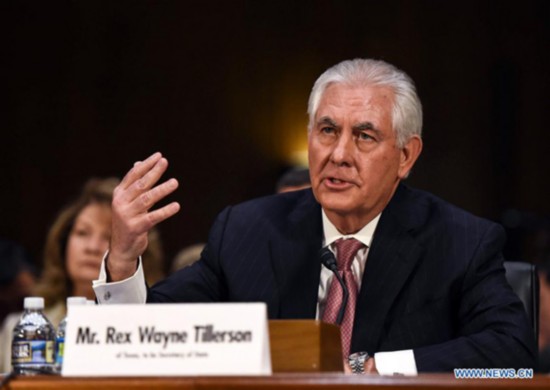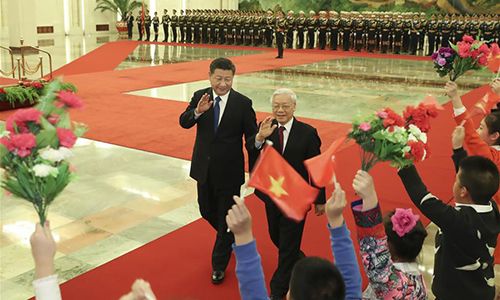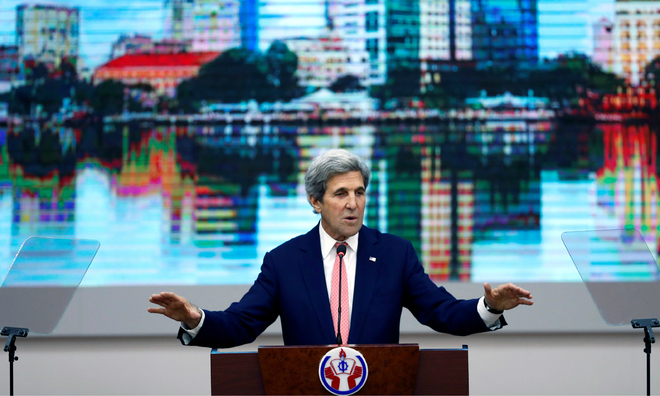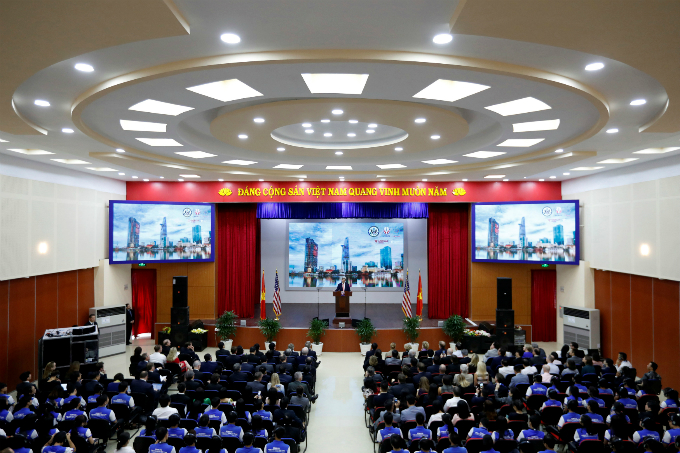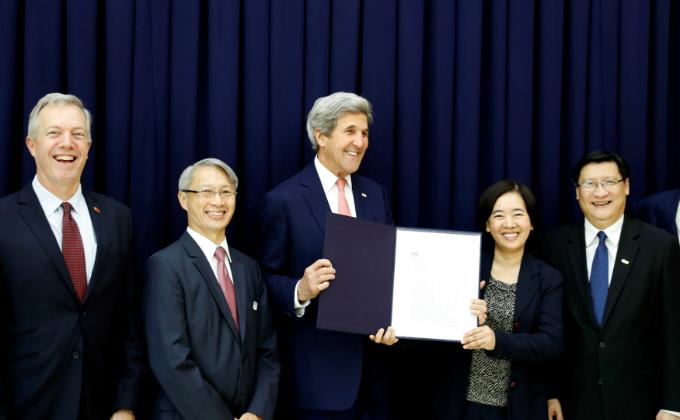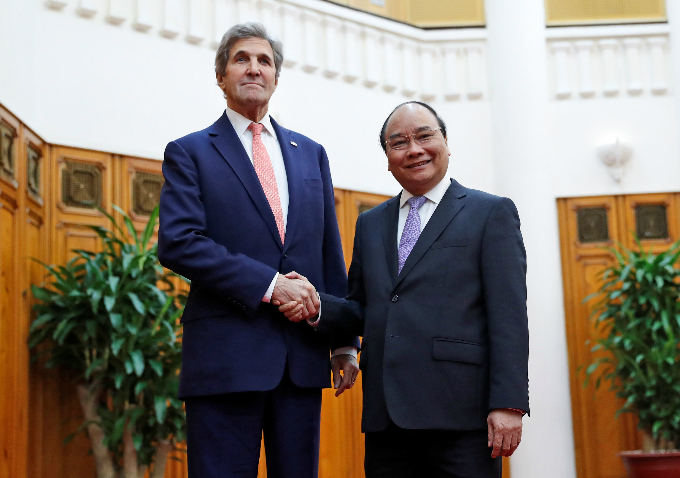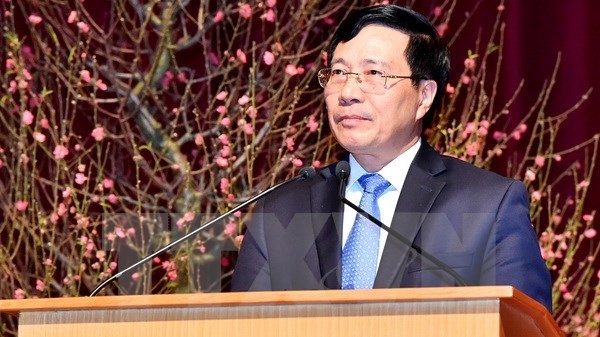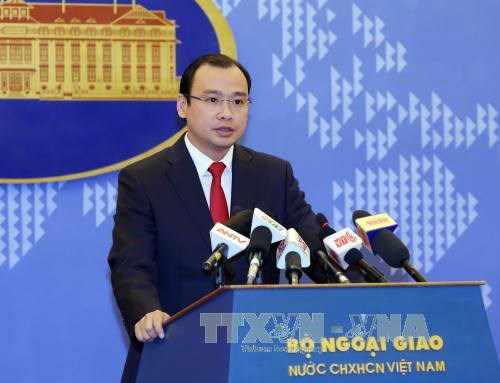TaiShang
ELITE MEMBER

- Joined
- Apr 30, 2014
- Messages
- 27,848
- Reaction score
- 70
- Country
- Location
Vietnam ís the first country in region claimed, controlled and owned Islands in SCS from long time ago. Pls dont telling yoke here, dream òf China to be boss ís wet-dream for ever.
As I said above, to become a lackey to the US as mentioned in the OP you shared, you needs to overthrow this:
Vietnam Communist Party chief looks to cement ties on trip to China
(Global Times) January 12, 2017
Vietnam's top leader begins an official four-day visit to China on Thursday, a move expected to cement ties between the two countries in the face of uncertainties in the Asia-Pacific region.
The trip is the first official visit by Nguyen Phu Trong to China after he was re-elected General Secretary of the Communist Party of Vietnam (CPV) Central Committee in January 2016. Analysts expect the trip will revive bilateral relations swayed by island disputes in the South China Sea, at a time when the future US policy on the South China Sea is unclear following the election of Donald Trumpas president.
Although voices of the claimant countries in the South China Sea dispute have subsided, tensions have escalated in the Asia-Pacific in the past two months, which will deeply influence relations between Vietnam and China and the US and Southeast Asian nations, said Zhuang Guotu, dean of the School for Southeast Asian Studies at Xiamen University.
The two sides are likely to confront and resolve thorny issues such as the South China Sea island disputes and trade imbalance, Zhuang said. "During this trip, Trong is expected to ascertain the actual situation of China and find a way of developing bilateral relations that both sides can accept," he said.
Zhang Mingliang, a professor with the Southeast Asian Institute of Ji'nan University, described Trong's visit as "a trip to hold the bottom line," which is to secure peace with China.
"The first priority of Trong's trip is to cement the relationship with China and to clear misunderstandings," Zhang said.
The promotion of friendly relations between China and Vietnam depends primarily on high-level dialogues rather than social exchanges, he said.
Tensions over the South China Sea issue have eased in the recent months, leading to an improvement in China's relationship with countries in the region.
"The display of friendship by other ASEAN(Association of Southeast Asian Nations) countries, especially the Philippines, has an impact on Vietnam," said Gu Xiaosong, head of Southeast Asian Studies at the Guangxi Academy of Social Sciences.
"China has both land and sea borders with ASEAN countries, so it places a high value on the relations with all ASEAN countries."
Vietnam is good at dealing with big powers like China and the US, with its flexible diplomatic tactics. In the past three to five years, it has benefited from the relations with both China and the US, which is very impressive, said Zhang.
"The essence of the South China Sea issue is the confrontation between China and the US. Vietnam is attempting to create a balance between the two powers to keep its independence, and it is doing well in this regard," Zhuang told the Global Times.
"Overall, Vietnam cannot get too close to the US due to different ideologies and political systems, besides, China is a neighbor of Vietnam," he added.
Trade expansion
Trade will be high on the agenda of the visit, according to experts. China has been Vietnam's biggest trading partner for 13 consecutive years. As bilateral trade continued to expand, in 2016, Vietnam became China's biggest trading partner among ASEAN nations.
China currently enjoys a trade surplus with Vietnam, but figures show that in the past year, there was a substantial increase in Vietnam's exports to China.
In the first 11 months of 2016, Vietnam's exports to China reached $32.9 billion, with a year-on-year growth of 20.8 percent. Vietnam's trade deficit decreased by 31 percent, according to the Chinese embassy in Hanoi. ( @Viet @AViet )
China's direct investment in Vietnam also rose by a whopping 112.7 percent in 2016, leaping to fourth place among 68 countries and regions that invest in Vietnam.
"Though Vietnam complains about trade deficit with China and poor quality of Chinese products, it benefits greatly from trade with China," said Zhang.
China provides not only raw materials for Vietnam's manufacturing industry and exports to Europe and the US, but also creates a lot of jobs in Vietnam, which contributes to the social stability of the country, he said.




